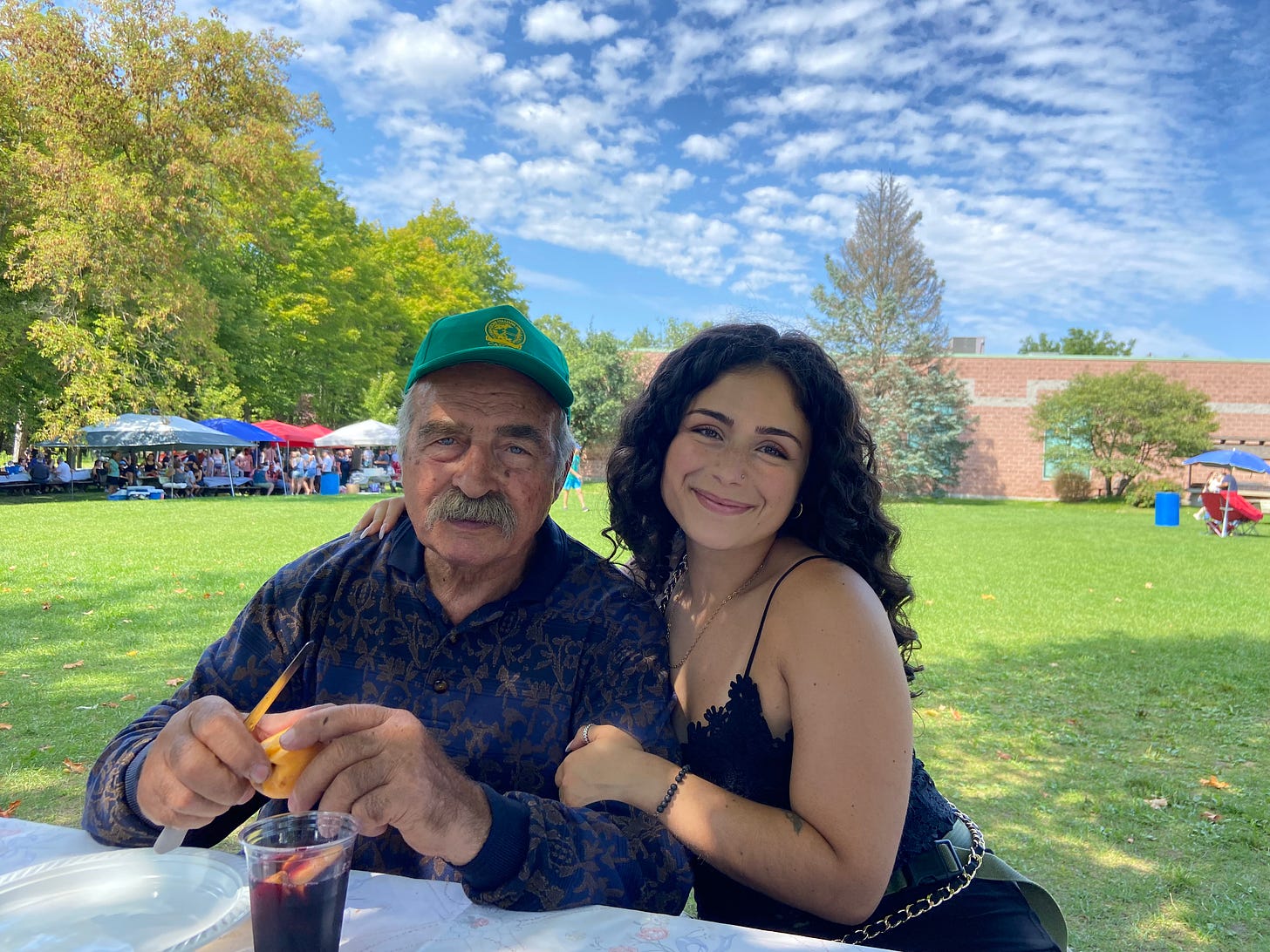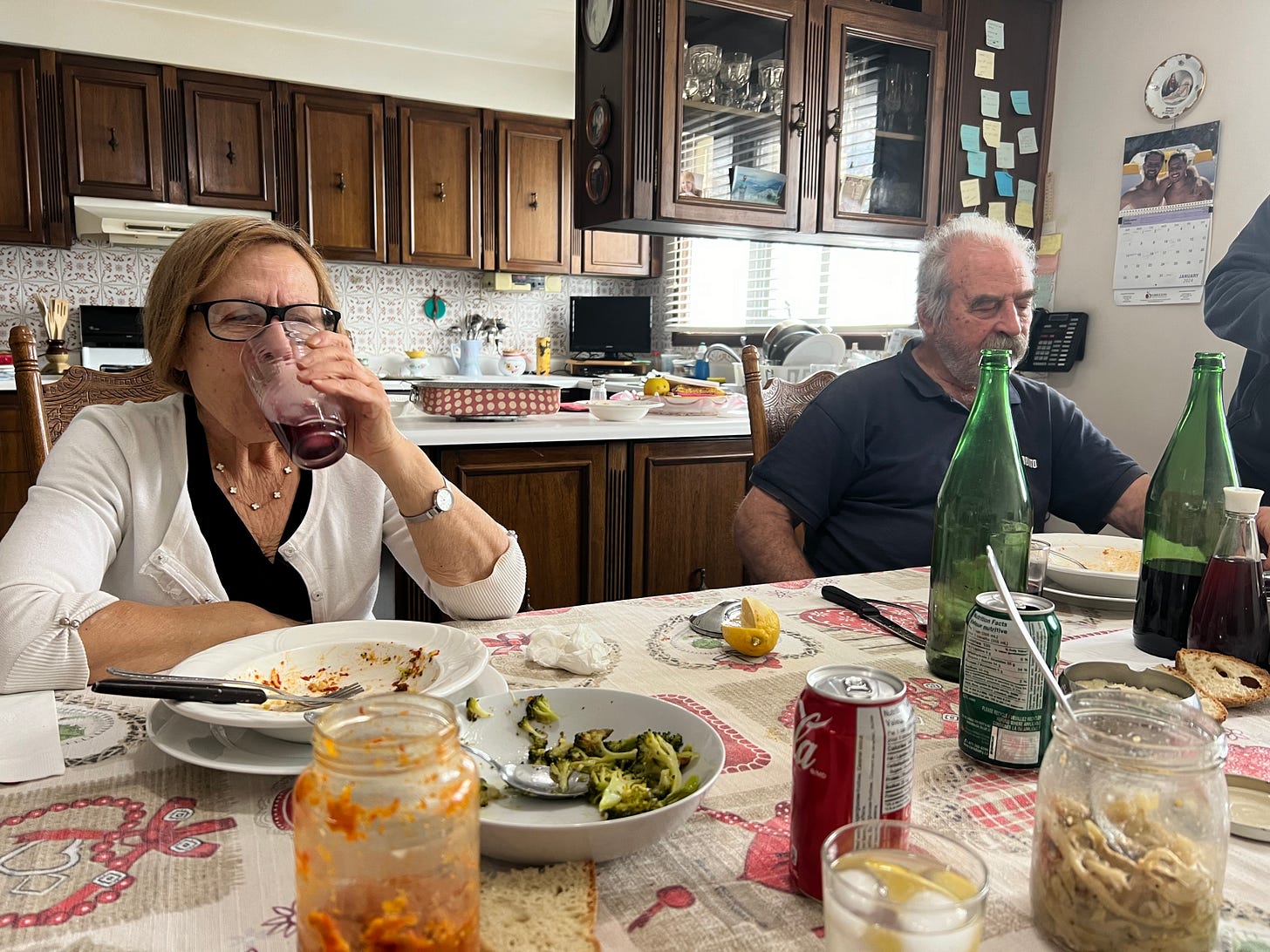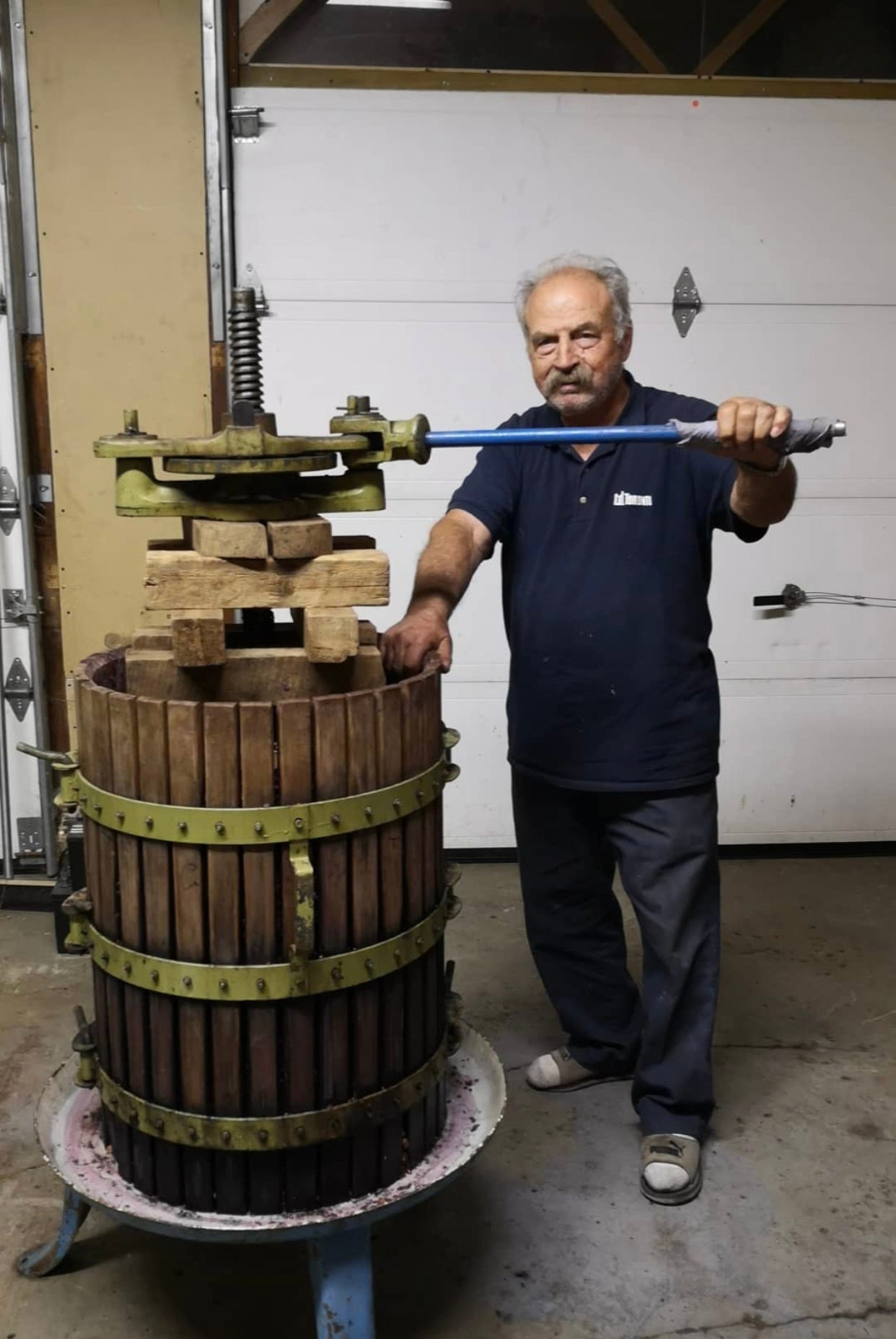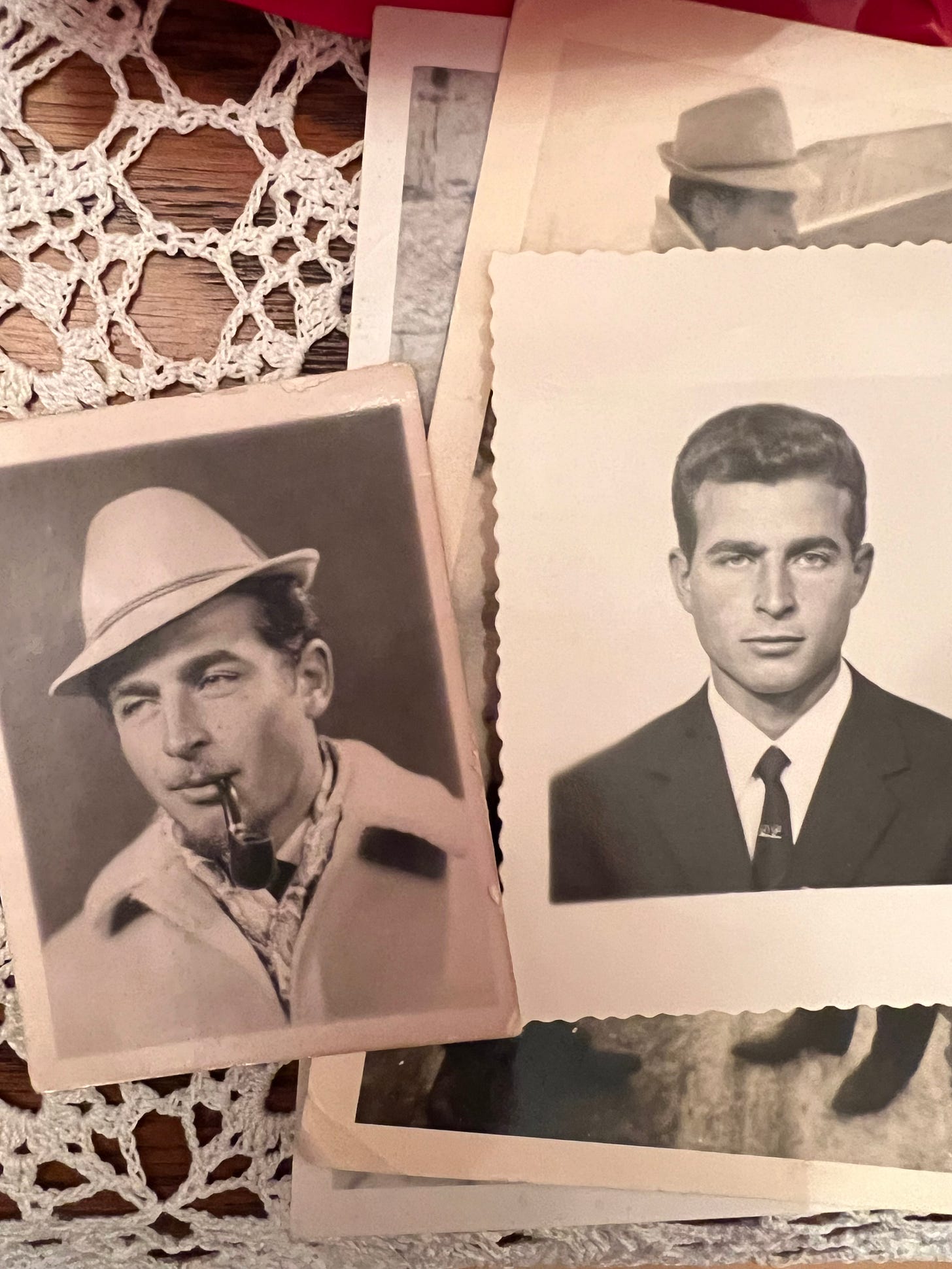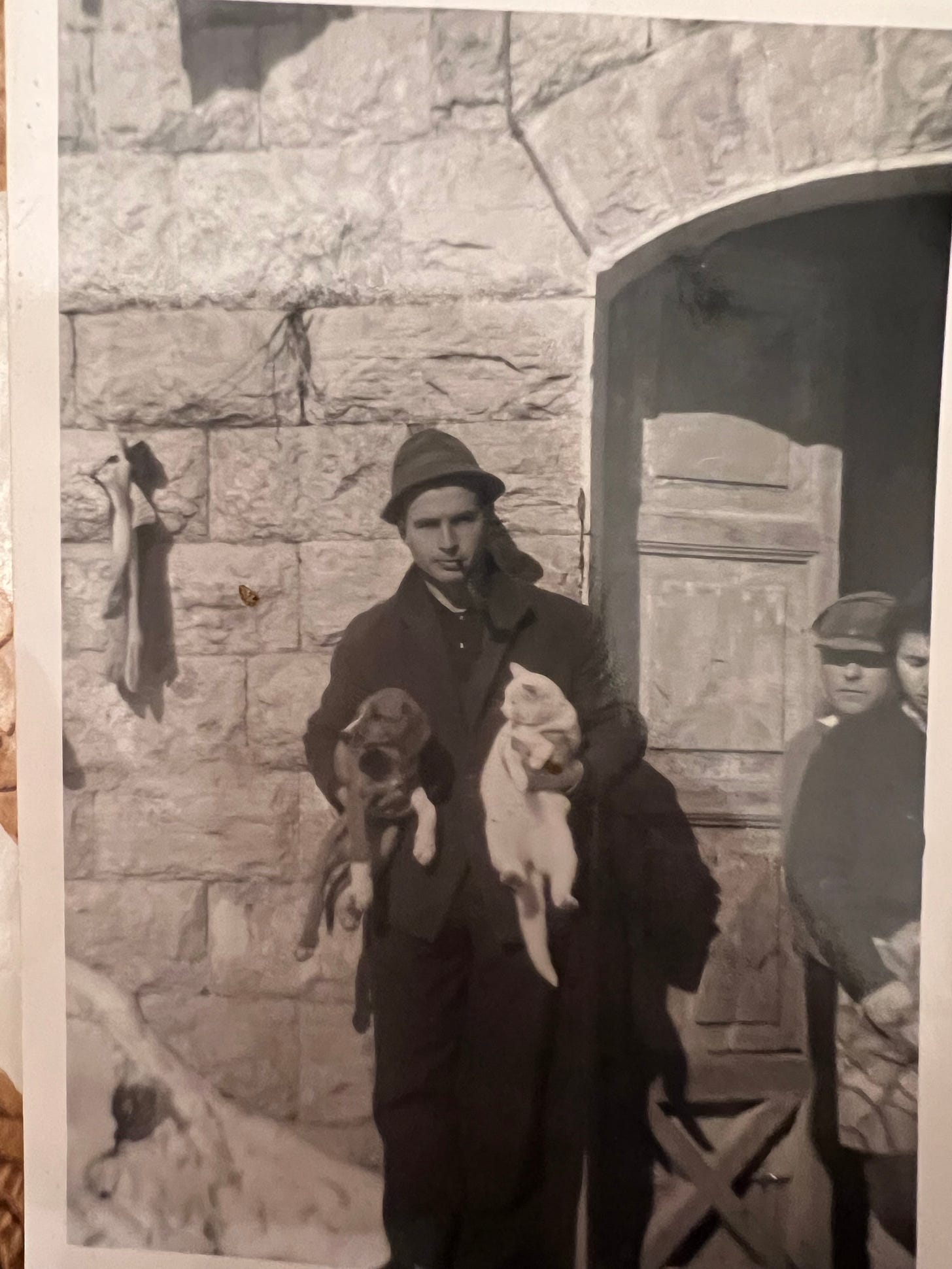“grief is an upside down, all around kind of thing.” — Reyna Biddy
Grief is an energy, and as Biddy says, it’s an upside down, all around kind of thing.
It’s both the emptiness and heaviness in the room you used to gather in together.
It’s the silence that fills the spaces where laughter once echoed, and the weight of memories that press against your chest, making it hard to breathe.
Grief can be both a dull ache and a sharp pain, or other physical manifestations you’ve never felt before, coming in waves that knock you off your feet when you least expect it.
It’s the deep longing for one more moment, one more conversation, one more hug.
It’s the black, tar-like weight that settles in your chest, replacing the lightness and warmth that once resided there.
This past Wednesday I received one of the most heartbreaking calls I’ve ever received in my life.
My 84-year-old grandfather, who was helping his elderly neighbour do something he’s done so many times before, had a horrible accident and was found unresponsive by first responders.
After quickly arriving at the hospital he was brought to, we’d unfortunately soon find out his soul left his body.
I’ve spent the last few days trying to find the right words to honour my grandfather, but they all seem to fall short in describing the incredible man he was. Even the word incredible doesn’t do him justice.
Not to mention the grief feels like I’m drowning and can’t catch my breath. I’m equal parts angry, devastated, and sad.
None of this feels real and I don’t know if it ever will feel real, simply because I don’t want it to be.
Until he passed, our family, in typical Italian fashion, would share lunches with him, my nonna (grandmother), and cousins, whenever we had the chance.
My grandfather would sit in his chair, not quite the head of the table but just beside it. He didn’t have to sit at the head of the table for it to be known he was the boss, it was an unspoken understanding.
Whenever we gathered for these lunches, with pasta, his wine, and his favourite bread as staples on the table, my nonno would tell stories. Often, these were stories we had all heard at least a few times before. Sometimes, we’d poke fun at him for sharing the same story more than a few times (but continued listening anyways).
Storytelling is something that’s been done for centuries as a means of passing down cultural values, experiences, and wisdom from one generation to the next.
It creates a sense of continuity and connection—connection being one of the things that was at the top of my grandfathers value list.
So rather than finding the right words to honour my grandfather, I decided to honour him in the way he lived: through storytelling—sharing the story of the man he was and the legacy he left behind.
My nonno Domenico, whom we affectionately called Mico, was born in the southern part of Italy in the province of Caserta, where he met my nonna and later immigrated to Canada for the opportunity of a better life for his family.
He was a loving father to three kids, his late daughter (my Zia/aunt), my father and uncle.
Professionally, he was a skilled welder until he retired in 2006. To his family, he could do (and did) everything, imparting many of those skills and much of that knowledge to my father, who was eager to help, learn from, and share a meal with him whenever he could.
Despite retiring, my grandfathers work ethic endured. If there wasn’t a job for him to do, he’d find one or make one.
He’d spend his summers tending to his garden that fed our family, fall making homemade wine and sausages, and winter keeping a fire going so we’d all be warm when we’d visit his home.
Recently, he started cooking again, another skill my nonno excelled at. He’d watch the cooking channel and attempt to replicate the dishes.
Despite me having sensitivities to both gluten and dairy, I tried his cornbread mac and cheese and watched the proud look on his face as I told him it was really good. (It was).
Occasionally, when I visited him and he wasn’t busy with something, I’d find him asleep on the couch with his head tilted back, mouth open, and the remote control in hand. And despite the fact that he was asleep, if the remote was touched he’d wake up immediately.
My nonno had a way of lighting up every room he entered with his vibrant voice and a smile so big it almost hid his blue eyes.
I can still hear my nonno laughing and then quickly telling me to shh! when I was about six years old. I had pointed at his mole and called him "nonno" while he was dressed as Santa Claus. (Yes, that’s how I realized Santa wasn’t real.)
I can still see my nonno affectionately patting my dog’s head and the smile on his face whenever I brought Apollo along.
I can still hear him over the phone saying “you come a for lunch?!” in his Italian accent.
I can still see him by my side at a social event one second and then gone the next — asking my parents “where did nonno go?" because he was such a social butterfly.
My nonna, his wife, has often said he made friends everywhere he’d go.
And I can still feel the energy of him following us down the driveway and almost up the street, saying goodbye as we left.
His home, where I spent much of my childhood and continued to visit frequently, feels empty without him.
But my grandfathers legacy will be that he died doing what he loved — working and helping others.
My mother has often said to me “you are your grandfathers’ granddaughter.” That I was so much like her dad and my dad’s dad. Both of them now no longer on this earth.
The day he passed as my family gathered at my grandfathers house, my uncle, his other son, said “you have so much of him in you.”
And as my friend consoled me over a glass of his wine, we joked about how I’d probably go out the same way — helping others.
Thank you, nonno, for giving me your selfless heart, your stubbornness, your unwavering loyalty to those you love, your love for animals, your abundance of garden fresh food and fond memories I’ll cherish forever.




